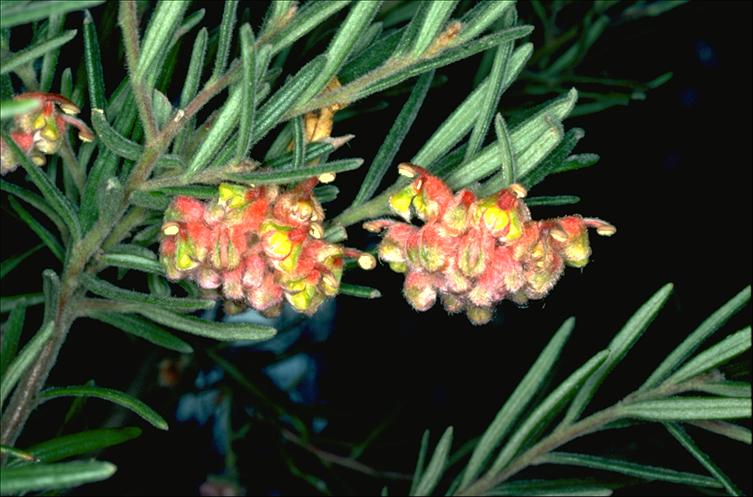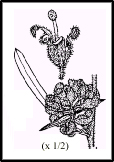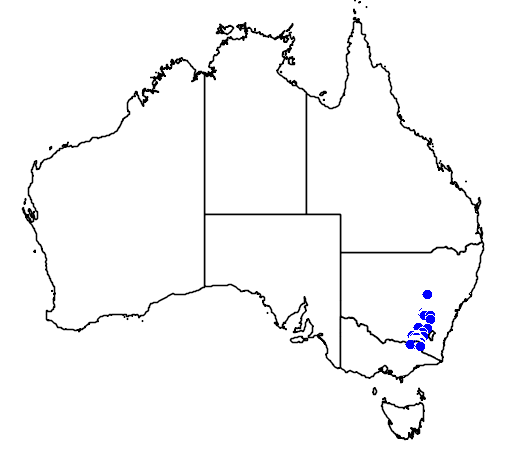Description
Common names
Crimson Grevillea.
Scientific names
Grevillea polybractea.
Family
Proteaceae.
Genus
Grevillea.
Name origin
Grevillea, after Charles Francis Greville (1749-1809), co-founder of London Horticultural Society. Polybractea, from Greek poly, many, and Latin bractea, bract, referring to many bracts which conceal buds.
Rainfall
400mm+.
Growth height
0.3-1.8m.
Presence in Australia
Noted in eastern parts of the region, including the areas Upper Back-Upper Jerra Jerra; Yarra Yarra; Coreinbob; O"Briens South & McLeods; Upper Kyeamba; Keajura; Upper Burkes; Major; Murraguldrie and Carabost.
This specie has been identified in the following Australian states: NSW, Vic.
Habitat
Dry sclerophyll forest on granite soil.
Habit
Spreading neat shrub, 30cm to 1.8m high, with rough hairy leaves.
Site preference
Slightly sheltered areas in well-drained soil. Tolerates open situations in full sun. Moderately frost tolerant.
Characteristics
Prone to root-rot fungus and quickly dies if infected. Hybridises with Woolly Grevillea (G. lanigera) and Rosemary Grevillea (G. rosmarinifolia).
Flowering
Red to pink with yellow or green, spring. Dense woolly flowerheads.
Seed collection
Summer. Monitor closely, as seeds shed soon after maturity. Secure nylon stockings or paper bags to fruiting branches after flowering to ensure collection.
Propagation
From cuttings, which strike readily. Can be grafted onto Rosemary Grevillea.
Shade and shelter
Useful low-level cover in windbreaks.
Wildlife
Good habitat.
Ornamental
Attractive. Interesting well-displayed flowers. Excellent in tubs. Prune from early age to retain low growth. Avoid excess watering.



